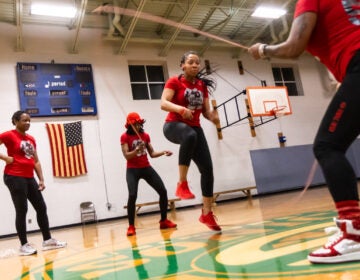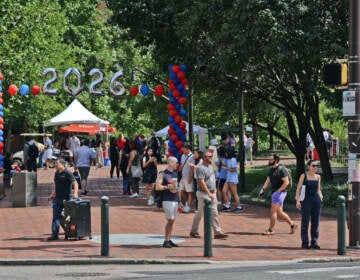Philly gyms demand they are ‘essential’ after city shutdown order
When announcing the new guidelines, Philadelphia Health Commissioner Thomas Farley said the closures were based on “the best data available to us.”
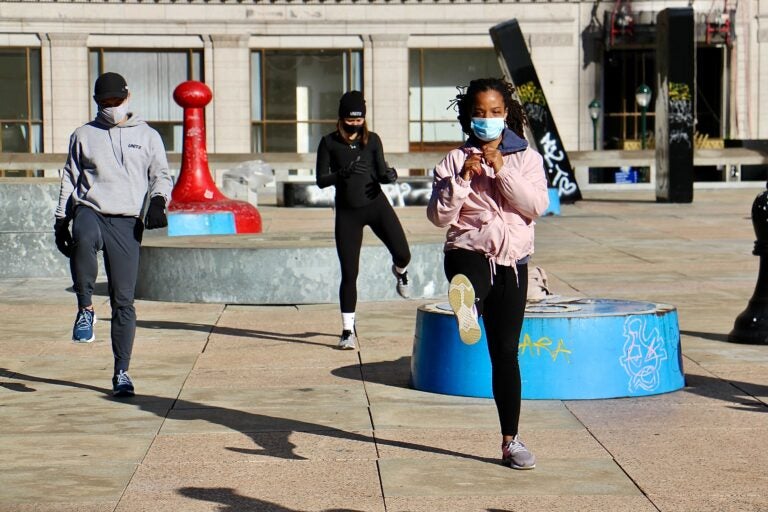
About 25 fitness enthusiasts participate in a protest workout at Thomas Paine Plaza to support gym owners who have been shut down by the coronavirus pandemic on Nov. 24, 2020. (Emma Lee/WHYY)
Ask us about COVID-19: What questions do you have about the current surge?
Calling themselves the Philadelphia Fitness Coalition, representatives from more than 30 gyms converged across from City Hall on Tuesday morning, where they burpeed and mountain climbed to draw attention to the plight of gyms forced to close for a second time due to COVID-19.
“The Mayor has cut off the number one tool our community uses to maintain mental and physical wellness,” said Gavin McKay of Unite Fitness. “If this continues, it will be a deathblow to an already decimated industry, eliminating jobs and income for thousands of employees.”
Starting Nov. 20, Philadelphia officials ordered gyms, museums, theaters to close, and indoor dining to cease, until at least Jan. 1, 2021. Nail salons, barbershops and retail businesses can continue operating on a limited basis as before, a distinction that fitness studio owners said is arbitrary.
The group, which is largely boutique studios that offer personal training or small group classes, said the city failed to provide data to back up why it closed some businesses and not others, and that closure without financial support will result in permanent business failure.
“Just here in Philadelphia alone, we’ve had over 13 studios who shut down. And frankly, a lot of people say, ‘This is only six weeks,’ but if we look at what’s been happening, it’s been eight months,” said Jaime Sutton, owner of J’aime Fitness in Fairmount.
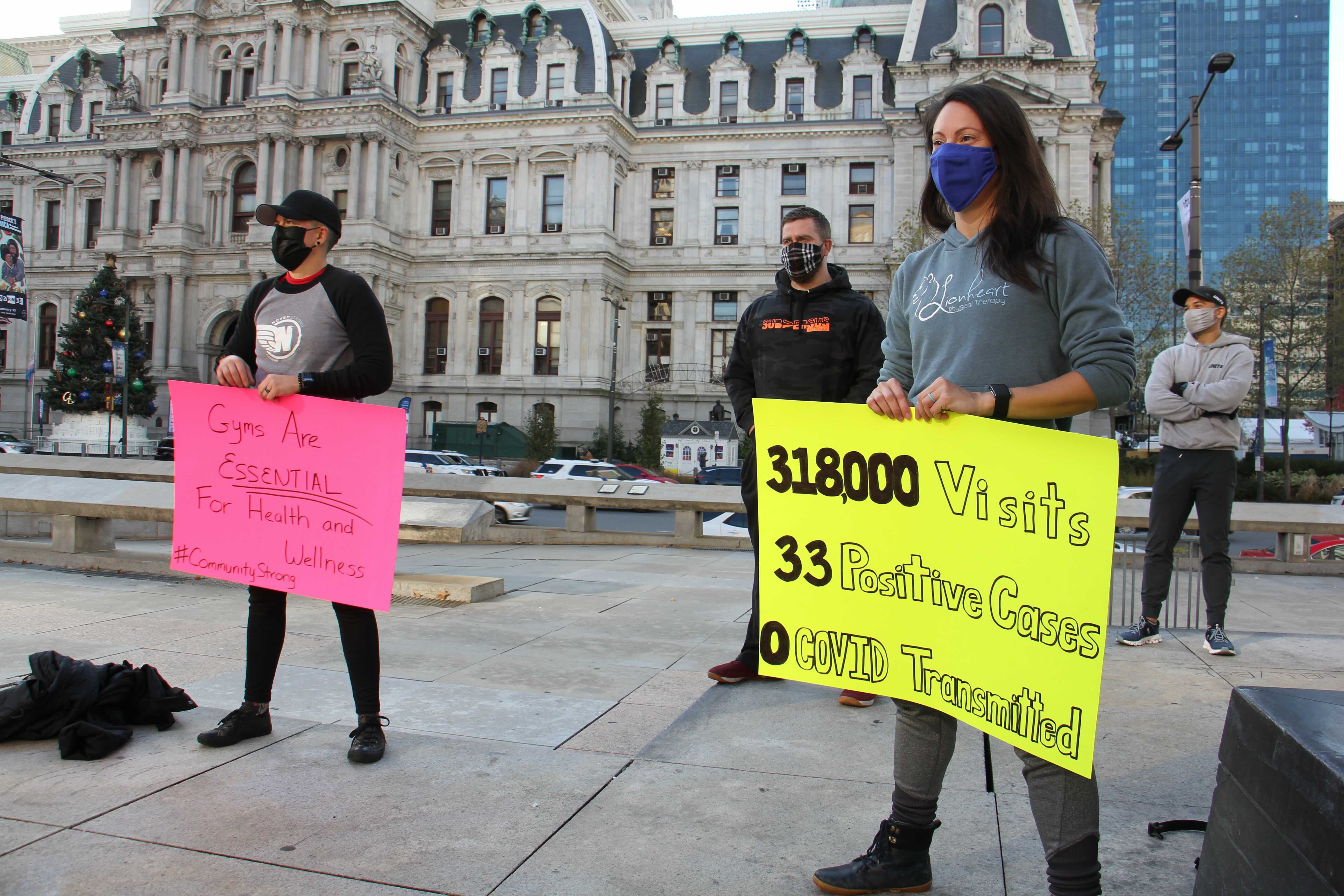
Coalition members also criticized the new regulations as baseless, that they have been imposed “without showing valid transmission data,” said McKay. The coalition compiled its own data from member gyms, which they say shows zero transmissions within their spaces out of 318,000 visits.
They also distanced themselves from photos showing maskless exercisers, including City Councilmember Bobby Henon, which have circulated online in recent weeks. This group said it can’t speak for all gyms, but that they represent businesses taking the regulations seriously.
“Right now, it’s a blanket shutdown, which isn’t equitable,” said Osayi Osunde, the owner and co-founder of Fit Academy in Brewerytown.
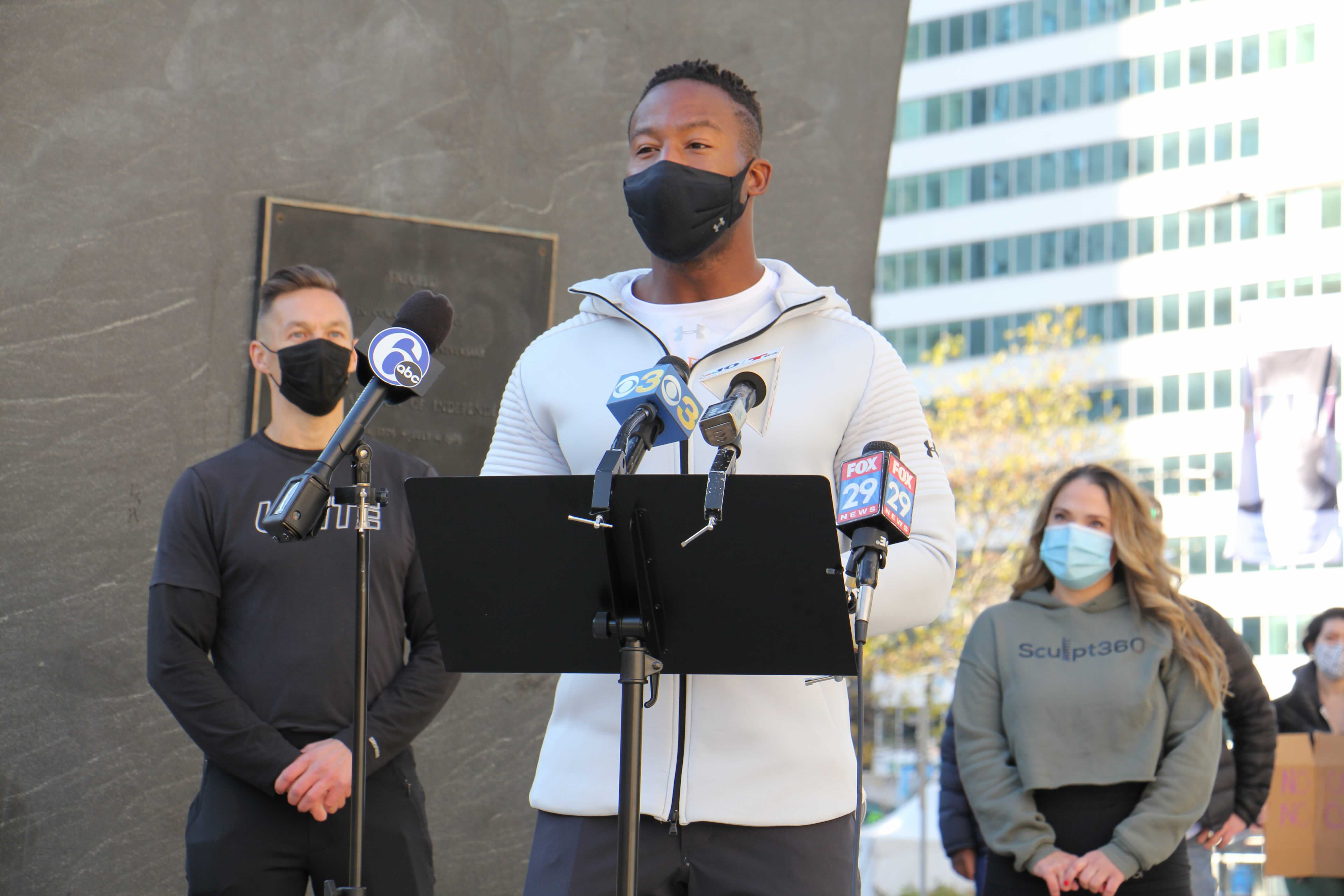
When announcing the new guidelines, Philadelphia Health Commissioner Thomas Farley said the closures were based on “the best data available to us.”
Some of that information came via conversations with contact tracers, as well as studies from other cities and countries, which show the coronavirus spreads in indoor settings where people are not wearing masks. However, “there’s room for judgment in all of this,” continued Farley.
A study published earlier this month in the journal Nature found that indoor activity at restaurants, gyms, cafes, hotels and religious centers had unsafe rates of transmission during the spring wave. It argued that reducing occupancy thresholds at these places can keep cases down without resorting to full-scale lockdowns.
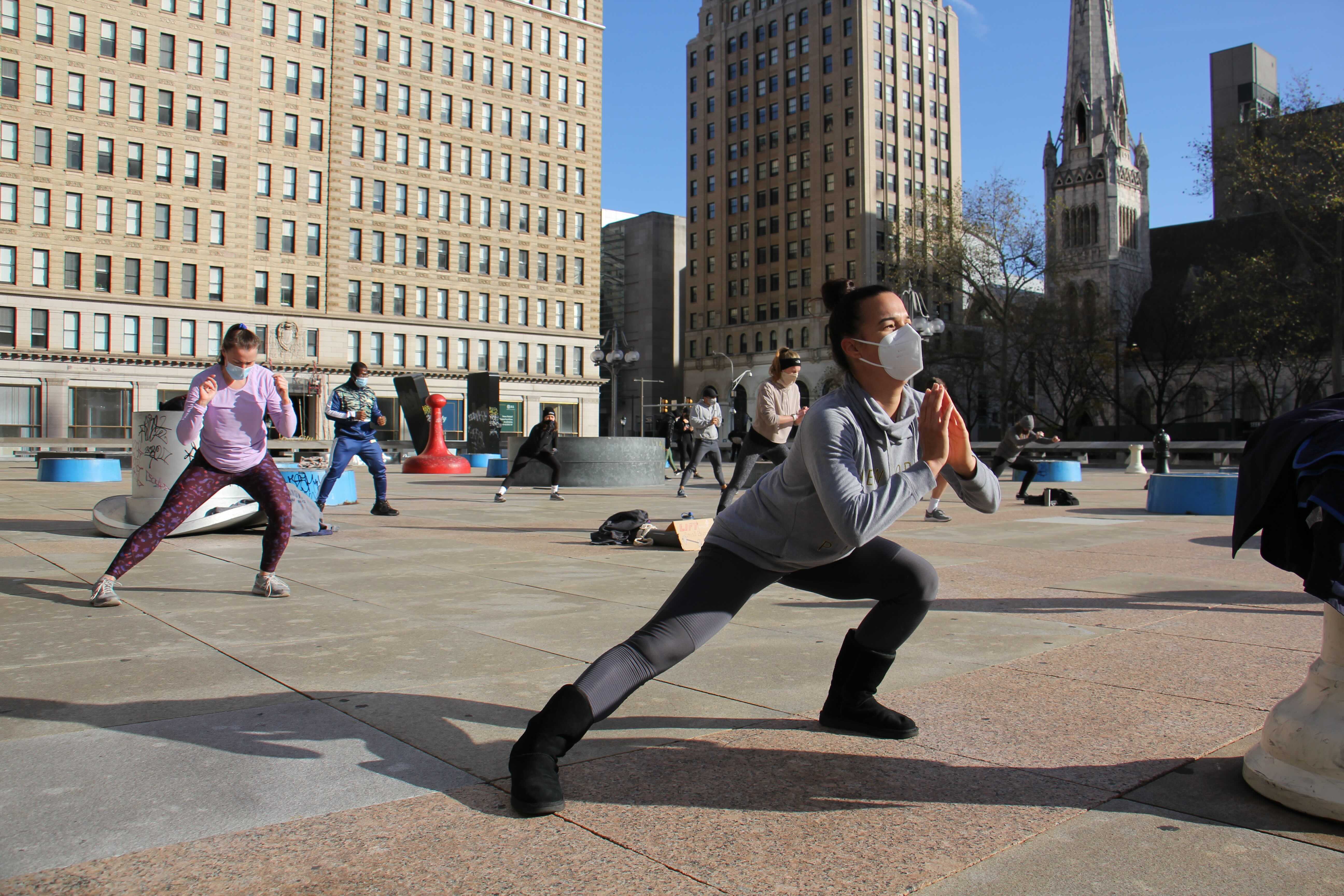
Philadelphia imposed new restrictions as COVID-19 cases surged around the region and country. There are currently more than 3,000 people hospitalized for coronavirus in Pennsylvania, higher than at any point during the prior peak in the spring. Gov. Tom Wolf announced new measures to enforce existing mitigation efforts on Monday, including firmer enforcement of mask wearing, but stopped short of closing down businesses again. Without increased federal aid for businesses, he said, coronavirus protections must be balanced against the state’s “very fragile economy.”
Several gym owners said they have met with Philadelphia city councilmembers to air their concerns, and they are also communicating with the offices of U.S. Sens. Pat Toomey and Bob Casey.
The group has circulated a list of demands where their petition has more than 3,000 signatures. They want fitness centers to be named “essential” businesses and new city- and state-funded business grants, among other asks.
There had been $1.3 billion dollars in unspent federal coronavirus relief aid tied up in Harrisburg for months. Many Democrats had been advocating for those funds to be used to help struggling businesses. Republican leaders and the governor opted instead to use the money to prop up the state budget, using funds to cover expenses related to first responders. Wolf signed that deal Monday.
The group supports a national bailout for gyms through the National Health & Fitness Recovery Act.
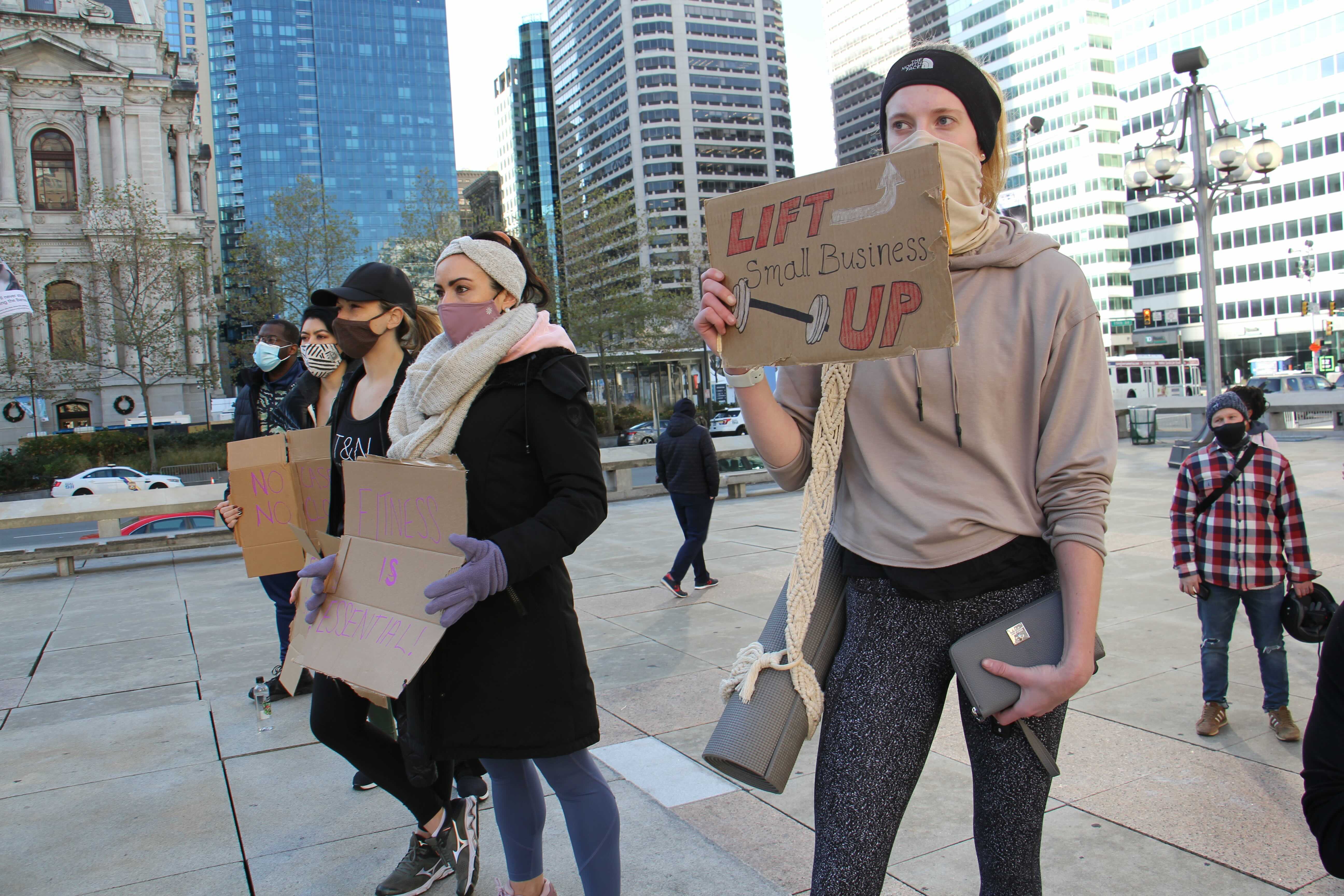
Some of the fitness studios received PPP loans from the federal government earlier in the pandemic, but with no agreement from Congress and the White House since April, new money has not flowed to individuals or businesses in need. Even when allowed to open, gyms have only been bringing in 30-50% of pre-COVID revenues, far short of levels the coalition says it needs to break even in many cases.
On social media, many onlookers mocked the workout-slash-protest, as proving that gyms could in fact run classes safely outside.
Looks like just a workout to me. Seems they don’t need the gym open https://t.co/8pk2wTJClq
— Brian Berg (@bberg11) November 24, 2020
Organizers dismissed that criticism. As sunlight hours become scarcer, they fear many clients won’t show up for frigid and dark early morning or evening classes.
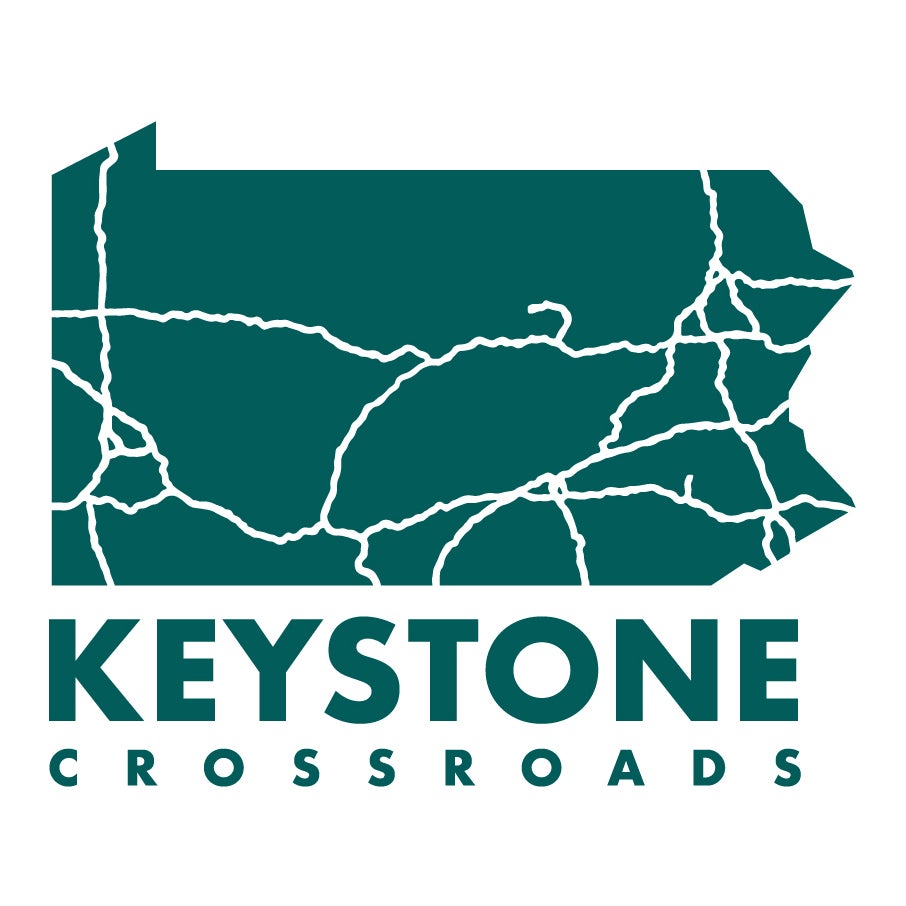
Get more Pennsylvania stories that matter
WHYY is your source for fact-based, in-depth journalism and information. As a nonprofit organization, we rely on financial support from readers like you. Please give today.



![CoronavirusPandemic_1024x512[1]](https://whyy.org/wp-content/uploads/2020/03/CoronavirusPandemic_1024x5121-300x150.jpg)
